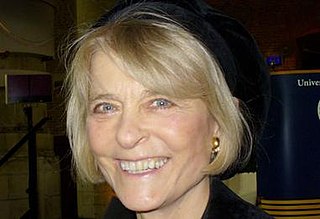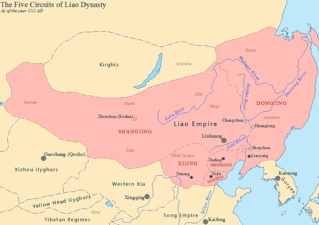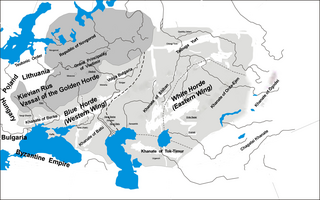Related Research Articles

The history of Islam concerns the political, social, economic, military, and cultural developments of the Islamic civilization. Most historians believe that Islam originated with Muhammad's mission in Mecca and Medina at the start of the 7th century CE, although Muslims regard this time as a return to the original faith passed down by the Abrahamic prophets, such as Adam, Noah, Abraham, Moses, David, Solomon, and Jesus, with the submission to the will of God.

In Islam, the ulama, also spelled ulema, are scholars of Islamic doctrine and law. They are considered the guardians, transmitters, and interpreters of religious knowledge in Islam.

Al-ʻUzzā was one of the three chief goddesses of Arabian religion in pre-Islamic times and she was worshipped by the pre-Islamic Arabs along with al-Lāt and Manāt. A stone cube at Nakhla was held sacred as part of her cult. She is mentioned in Qur'an 53:19 as being one of the goddesses who people worshipped.

Patricia Crone was a Danish historian specialising in early Islamic history. Crone was a member of the Revisionist school of Islamic studies and questioned the historicity of the Islamic traditions about the beginnings of Islam.

A Sufi lodge is a building designed specifically for gatherings of a Sufi brotherhood or tariqa and is a place for spiritual practice and religious education. They include structures also known as khānaqāh, zāwiya, ribāṭ, dargāh and takya depending on the region, language and period. In Shia Islam, the Husayniyya has a similar function.
Lawrence Irvin Conrad is a British historian and scholar of Oriental studies, specializing in Near Eastern studies and the history of medicine. He currently serves as historian for the Wellcome Institute for the History of Medicine in London.

Michael Allan Cook FBA is a British historian and scholar of Islamic history. Cook is the general editor of The New Cambridge History of Islam.
Hugh Nigel Kennedy is a British medievalist and academic. He specialises in the history of the early Islamic Middle East, Muslim Iberia and the Crusades. From 1997 to 2007, he was Professor of Middle Eastern History at the University of St Andrews. Since 2007, he has been Professor of Arabic at SOAS, University of London.

Asma Afsaruddin is an American scholar of Islamic studies and Professor in the Department of Near Eastern Languages and Cultures at Indiana University in Bloomington.
George Fadlo Hourani was a British philosopher, historian, and classicist. He is best known for his work in Islamic philosophy, which focused on classical Islamic rationalism and ethics.
Theophilos the Indian, also known as Theophilus Indus, also called "the Ethiopian", was an Aetian or Heteroousian bishop who fell alternately in and out of favor with the court of the Roman emperor Constantius II. He is mentioned in the encyclopedia Suda.

Reuven Amitai, also Reuven Amitai-Preiss, is an Israeli-American historian and writer, specializing in pre-modern Islamic civilization, especially Syria and Palestine during the time of the Mamluk Empire. In his 20s he moved to Israel, and became history professor at the Hebrew University of Jerusalem. As of 2012 he is the Dean of the Faculty of Humanities at the Hebrew University.
The Formation of Islam: Religion and Society in the Near East, 600-1800 is a book by American historian and orientalist, Jonathan Berkey, published by Cambridge University Press in 2003. The book is divided into four parts:

The spread of Islam spans almost 1,400 years. The early Muslim conquests that occurred following the death of Muhammad in 632 CE led to the creation of the caliphates, expanding over a vast geographical area; conversion to Islam was boosted by Arab Muslim forces expanding over vast territories and building imperial structures over time. Most of the significant expansion occurred during the reign of the rāshidūn ("rightly-guided") caliphs from 632 to 661 CE, which were the first four successors of Muhammad. These early caliphates, coupled with Muslim economics and trading, the Islamic Golden Age, and the age of the Islamic gunpowder empires, resulted in Islam's spread outwards from Mecca towards the Indian, Atlantic, and Pacific Oceans and the creation of the Muslim world. The Islamic conquests, which culminated in the Arab empire being established across three continents, enriched the Muslim world, achieving the economic preconditions for the emergence of this institution owing to the emphasis attached to Islamic teachings. Trade played an important role in the spread of Islam in some parts of the world, such as Indonesia. During the early centuries of Islamic rule, conversions in the Middle East were mainly individual or small-scale. While mass conversions were favored for spreading Islam beyond Muslim lands, policies within Muslim territories typically aimed for individual conversions to weaken non-Muslim communities. However, there were exceptions, like the forced mass conversion of the Samaritans.
Education has played a central role in Islam since the beginnings of the religion, owing in part to the centrality of scripture and its study in the Islamic tradition. Before the modern era, education would begin at a young age with study of Arabic and the Quran. For the first few centuries of Islam, educational settings were entirely informal, but beginning in the 11th and 12th centuries, the ruling elites began to establish institutions of higher religious learning known as madrasas in an effort to secure support and cooperation of the ulema. Madrasas soon multiplied throughout the Islamic world, which helped to spread Islamic learning beyond urban centers and to unite diverse Islamic communities in a shared cultural project. Madrasas were devoted principally to study of Islamic law, but they also offered other subjects such as theology, medicine, and mathematics. Muslims historically distinguished disciplines inherited from pre-Islamic civilizations, such as philosophy and medicine, which they called "sciences of the ancients" or "rational sciences", from Islamic religious sciences. Sciences of the former type flourished for several centuries, and their transmission formed part of the educational framework in classical and medieval Islam. In some cases, they were supported by institutions such as the House of Wisdom in Baghdad, but more often they were transmitted informally from teacher to student.

This is a timeline of the Jurchens.

This is a timeline of Mongols prior to the Mongol Empire.

This is a timeline of events involving the Golden Horde (1242–1502), from 1459 also known as the Great Horde.
The Sunni Revival was a period in Islamic history marked by the revival of the political fortunes of Sunni Islam, a renewed interest in Sunni law and theology and the spread of new styles in art and architecture. Conventionally, the revival lasted from 1055 until 1258.

This is a timeline of the Xinjiang under the rule of the Qing dynasty.
References
- ↑ "Jonathan Berkey". Davidson College . Retrieved 18 September 2014.
- ↑ Albert Hourani Book Award Archived 2010-05-16 at the Wayback Machine